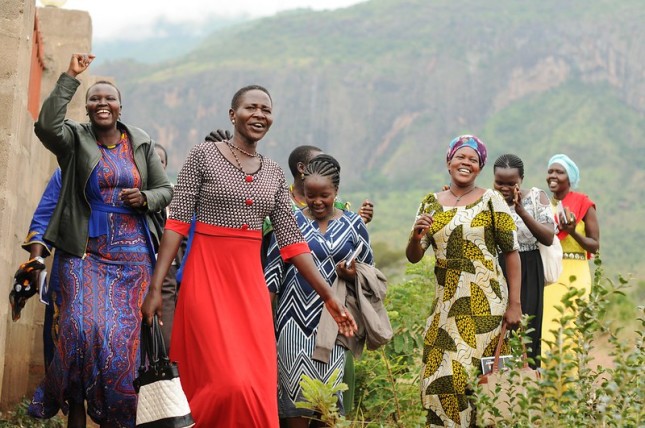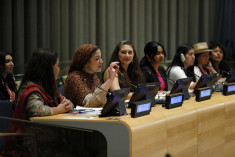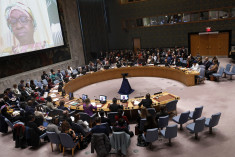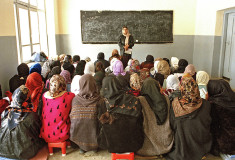-
Connecting the Dots to Gender Equality and Empowerment
›
“Women’s ability to access education, pursue a career outside the home, or participate politically often hinges on their ability to exercise control and autonomy over their own bodies and reproduction,” said Sarah Craven, Director of the North American Representation Office at UNFPA at a recent Wilson Center event, hosted in partnership with Population Institute, to launch their new report, Connecting the Dots: Sexual and Reproductive Health and Rights as Prerequisites for Global Gender Equity and Empowerment.
-
Connecting the Dots: Women’s Economic Empowerment and Reproductive Health
›
In the fight for global gender equality, women’s economic empowerment and sexual and reproductive health and rights (SRHR) are intrinsically linked. This year, for instance, the Biden-Harris administration launched the U.S. Strategy on Global Women’s Economic Security. The interagency strategy is the first of its kind, and it lays out a vision in which women and girls around the world, in all their diversity, are able to fully, meaningfully, and equally contribute to, and benefit from, economic growth and global prosperity.
-
Connecting the Dots: Women’s Political Empowerment and Reproductive Health
›
The Biden-Harris Administration marked a significant milestone earlier this year by hosting the second Summit for Democracy—which highlighted steadfast commitments to advancing women’s political and civic engagement. Global efforts towards achieving gender equality have not prevented the continuing worldwide underrepresentation of women in political decision-making—hindering progress towards empowerment and equal participation.
-
Connecting the Dots: Women, Peace, and Security and Reproductive Health
›
It is well established that women’s and girls’ lives are disproportionately affected by humanitarian emergencies—and that these crises often underscore pre-existing discriminatory practices. According to the United Nations Population Fund (UNFPA), women and children account for more than 75 percent of those at risk from war, famine, persecution, and natural disaster. During these emergencies (and in their aftermath), women and girls are exposed to greater threats, such as the loss of livelihoods, education, and security due to displacement and the breakdown of social order.
-
Connecting the Dots: The Interplay between Education and Sexual and Reproductive Health
›
The importance of quality education for girls cannot be understated. And when global thought leaders, policymakers, gender advocates, and researchers convened in Rwanda in July at the Women Deliver 2023 Conference, it was a chance to discuss a topic increasingly at the forefront of global conversation: How can quality education advance gender equality and empowerment worldwide?
-
Connecting the Dots: Gender Equality and Sexual and Reproductive Health and Rights
›
In today’s episode of New Security Broadcast, Sarah Barnes, Project Director for the Wilson Center’s Maternal Health Initiative met with Bridget Kelly, Director of Research for Sexual and Reproductive Health and Rights at Population Institute to discuss the launch of Population Institute’s new report: Connecting the Dots, Sexual and Reproductive Health and Rights as Prerequisites for Global Gender Equality and Empowerment. On the episode Kelly, lead author of the Connecting the Dots report, shares findings from the report on the importance of the Sexual and Reproductive Health and Rights (SRHR) agenda, how SRHR leads to gender equality, the power of and need for increased U.S. investment, and policy recommendations to fully realize the SRHR agenda and improve gender equality and empowerment.
Showing posts from category Connecting the Dots.









